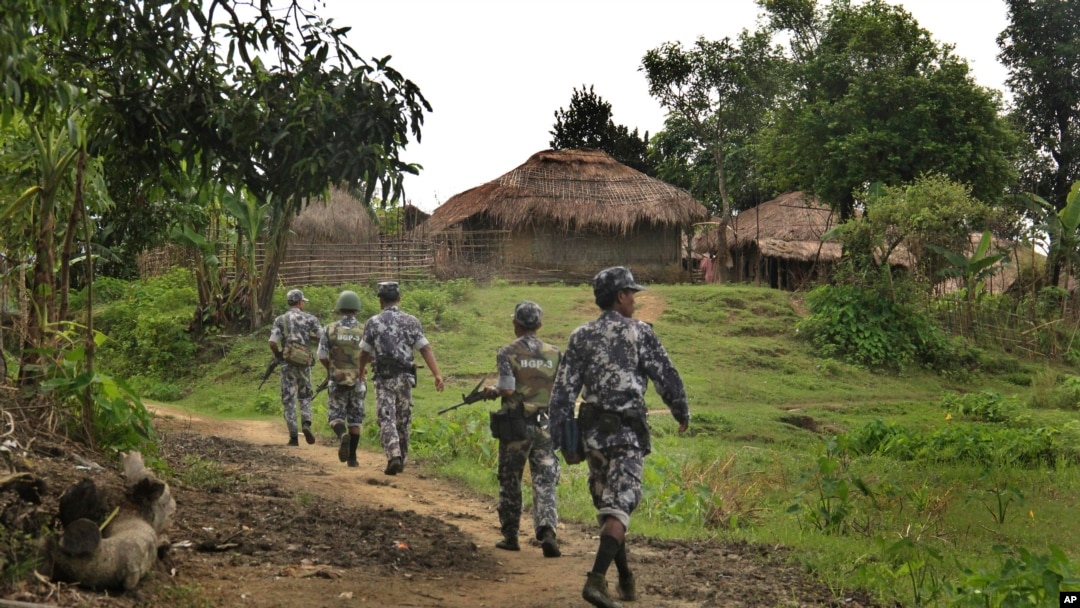Lawmakers around Southeast Asia are coming to the defense of one of their counterparts in Myanmar, who faces legal action after he told the Reuters news agency that military shelling had left two Rohingya Muslim women dead.
The military, which rules Myanmar in a quasi-junta, is suing lawmaker U Maung Kyaw Zan for blaming it for the fatal attack in January. The military, which is also suing Reuters for publishing the story that quotes Maung Kyaw, argues that blame for the attack belongs to the Arakan Army, an insurgent group. Both sides have a history of blaming each other for attacks.
Malaysian lawmaker Charles Santiago defended Maung Kyaw’s right to free speech, saying that it was “totally disproportionate” for the military to sue him, which Santiago called an act of reprisal.
"Such reprisals not only intensify the current climate of fear and censorship amongst those critical of the government,” he said, “but also cripple the work of lawmakers and independent media who play a crucial role in promoting accountability and good governance.”
Reuters as well as Maung Kyaw, who is a member of the Upper House of Myanmar’s parliament, are both being sued under a part of a law that criminalizes defamation committed through a telecommunications network. That measure is known as the Telecommunications Law.
Santiago sees the law as part of a bad trend of censorship across Southeast Asia. In 2019, Singapore and Vietnam both enacted new laws that let authorities demand websites remove information they say is false. Thailand, Indonesia, and Malaysia are all threatening citizens with jail time over their online posts about the coronavirus.
"Reporters and parliamentarians have unique responsibilities that serve the wider public interests and they must be allowed to conduct their work without fear or favor,” said Eva Sundari, a former member of parliament in Indonesia.
She agreed with Santiago that Myanmar is trying to suppress information unfairly, saying its “draconian” Telecommunications Law can be abused.
For his part, Maung Kyaw has stood firm, saying he was merely stating what was happening on the ground in Rakhine state, the restive region where minorities, including Rohingya Muslims, are seeking greater autonomy from the Myanmar government. Violence has forced thousands to seek refuge in neighboring Bangladesh.
"As a representative of the people, I listened to what the people told me and I spoke about it,” he told Reuters. “I will just have to face the lawsuit and receive the judgment from the court.”
Reuters also defended itself against the military’s lawsuit, saying there was no basis for a criminal action against the news agency.
"Reuters stands by the reporting that is of concern to the military and is the subject of an ongoing discussion with Myanmar’s Press Council,” a Reuters spokesperson said, referring to the organization that adjudicates media disputes.
Both defendants in the pending lawsuit have received a show of support from the Association of Southeast Asian Nations Parliamentarians for Human Rights. The non-profit organization said merely making statements that the government considers defamatory should not be a crime in Myanmar.
The Telecommunications Law “has continued to be frequently used against government critics,” the organization said in an email.
It said the real target that should be investigated is the national army of Myanmar for its history of violence against the Rohingya and other minorities.
Philippine politician Teddy Baguilat agrees that “international crimes” may have been committed against minorities and that foreign powers should stand up for the victims.
"The international community” has “responsibilities to ensure justice for all in Myanmar,” said Baguilat, a former member of the Philippines' House of Representatives.


